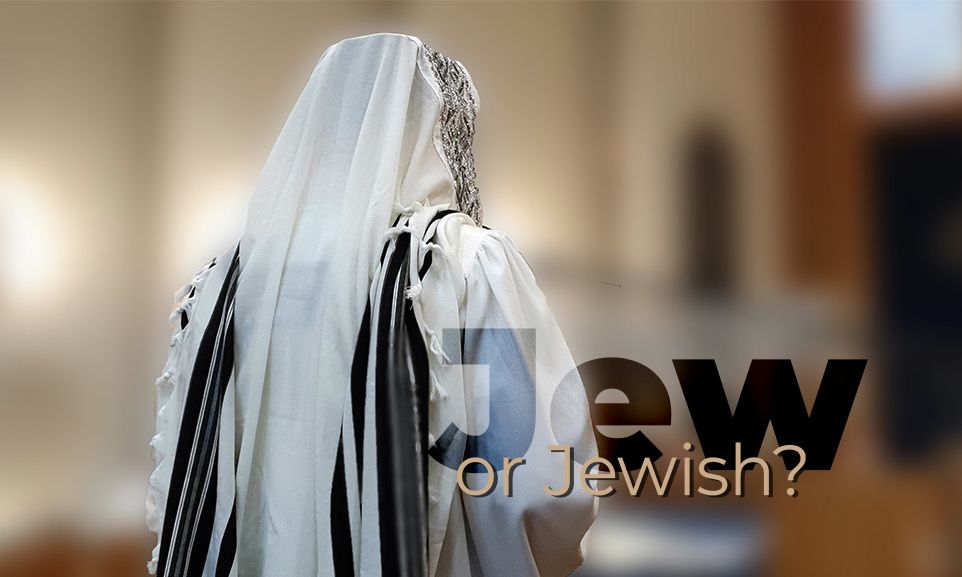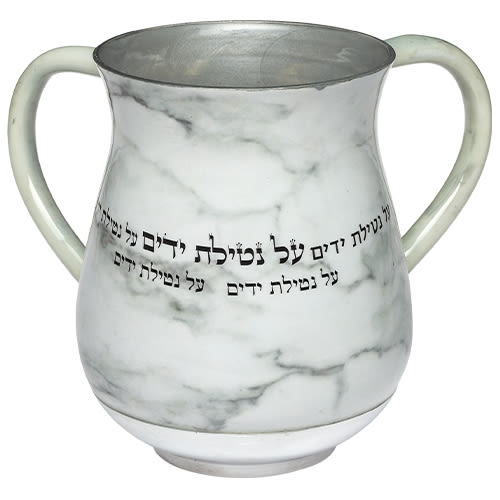
Emor: Jew or Jewish?
The Kohanim in the Holy Temple must be holy in order to deal with such high level holiness; yet, technical holiness alone doesn't make a person holy...

“They shall be holy to their G-d and they shall not desecrate the Name of their G-d…and they shall be holiness.”(Leviticus 21:6).
The Torah doesn’t waste a single letter, much less a single word. We therefore must ask ourselves, why is the Torah apparently repetitious, for it already tells us at the beginning of the passage, “And they shall be holy?” Here, “holy” is an adjective. So what’s the purpose at the end of the passage for telling us that the Kohanim must be “holiness”, a noun?
The Torah is conveying that the Kohanim, the priests who engage in the highest level of Divine service in the Holy Temple, must not only be “holy,” an adjective that implies exhibiting holy traits or maintaining a status of holiness; they must be “holiness,” a noun, the essence of holiness.
My esteemed and beloved teacher Rabbi Shalom Arush shlit’a always says that one must never look at the Torah as a history book or as a collection of stories from the past. The Torah is alive and relevant as well as eternal, and each passage carries an important personal message for each of us. With that in mind, we can see a perpetually vital lesson in our passage at hand.
Hashem is telling the Kohanim that being holy per se is not sufficient. They should be the epitome of holiness and the essence of holiness; in other words, holiness itself. This is not only a command for the Kohanim, the priestly tribe. This is a command for all of the Jewish People, for the Torah says, “And you shall be for Me a nation of Kohanim” (Exodus 19:6). If the Kohanim are the essence of holiness, then we all must be.
Although it’s seemingly subtle, there’s a major difference between someone who is “Jewish”, an adjective, and someone who is a “Jew”, a noun. “Jewish” as an adjective normally describes and accompanies a noun, such as “Jewish American”. In such a case, the adjective merely tells us something about the noun, for the noun is the center of importance. A person who calls himself a “Jewish American” sees him/herself as an American who happens to be of Jewish descent. Yet, a person who calls himself an “American Jew” regards him/herself as a Jew who was either born or lives in America. Such an individual’s focal point is his or her Judaism and not their American culture or citizenship. The way an individual describes him/herself is a cogent expression of their priorities in life.
So what is Hashem telling the Kohanim? One can be technically and even halachically holy; he went to the mikva, he didn’t defile himself by touching something unholy or impure and he avoids transgressions. Hashem is telling the Kohanim that being “holy” is insufficient; Hashem wants them to be the embodiment of holiness, not just technically holy. Their minds and heart, in addition to their bodies from head to toe, should be holiness. And since He wants us to be a nation of Kohanim, we should be the epitome of holiness as well.
Let’s go a step further with the same idea. Hashem doesn’t want a Jewess to be modest; she should be the quintessence of modesty. Technically, a woman might conform to the rules of modesty – she covers her hair with a wig, her sleeves reach her forearm and her hemline is below the knee. But if her wig is long and flowing down to her shoulders, her clothes are tight and provocative and her makeup cries out, “Look at me,” then she’s far from modesty. Hashem wants her to feel and think modesty. Once she does, she too is holiness.
The same goes for a man. It’s not enough to learn Torah and to perfunctorily perform mitzvot. If a man’s heart harbors thoughts of lust – even if he avoids outright transgressions – that same heart cannot harbor a burning desire for Hashem. Hashem wants our hearts to be worthy sanctuaries for Him; therefore, we must be the personification of holiness and not merely holy. Sure, it sounds like a distant goal, but even a journey of ten thousand miles begins with taking the first step. All we have to do is desire with sincerity and express our desire in prayer, and Hashem does the rest.












Tell us what you think!
Thank you for your comment!
It will be published after approval by the Editor.